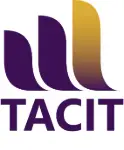Bank of America has published a monthly survey titled ‘Global Fund Manager Survey’ over more than 30 years. This survey compiles the responses of investment professionals globally with the sole aim of providing a barometer of market sentiment. However, the survey is used by some firms as part of their investment process as the collective wisdom of professional investors must be helpful in decision making, right?
Well, we do not believe so and this year has provided a glimpse into how wrong sentiment can be. In January, the survey’s findings were that investors were positive on the US dollar and on US equities but negative on most other global assets. Arguably, this was not unusual after multiple years of dollar strength and US equity outperformance of almost all other global equity markets. But since that survey, the US dollar has fallen markedly through the year and US equities have lagged most other markets for the first time in many years.

Source: Tacit Investment Management
A lazy explanation will put this down to President Trump’s economic policies spooking investors. But informed analysis of longer term market trends shows that a falling US dollar is an established pattern when interest rates begin to fall globally, as the attractiveness of the dollar and US assets diminishes relative to other leading currencies and alternative assets in other regions. It is this loosening of financial conditions which has been the overriding driver of returns this year rather than the politics. The easing of financial conditions is not the sole driver, but interestingly the behaviour of global assets has not behaved differently in this cycle compared to previous ones, even with the significant political headwinds.
To explain the broader context for this outcome which defies the earlier consensus expectation, we would point to one structural imbalance which has developed since the Global Financial Crisis in 2007/8. This is that US equities have become increasingly dominant at the expense of all other markets. The chart below shows how the US equity market has crowded out all other equity markets globally on a scale not seen since the early 1970s.

Source: SG Cross Asset Research, 2025
This trend was unlikely to continue indefinitely and President Trump may well have been the catalyst which reverses the trend of the past decade and a half. If this is true, we are very much in the early phases of a mean reversion which will benefit our investment approach at the expense of the crowd. We have for some time had a much more broadly based international representation in all our strategies as we can positions our clients meaningfully for the rerating in these other markets at the expense of the US.

